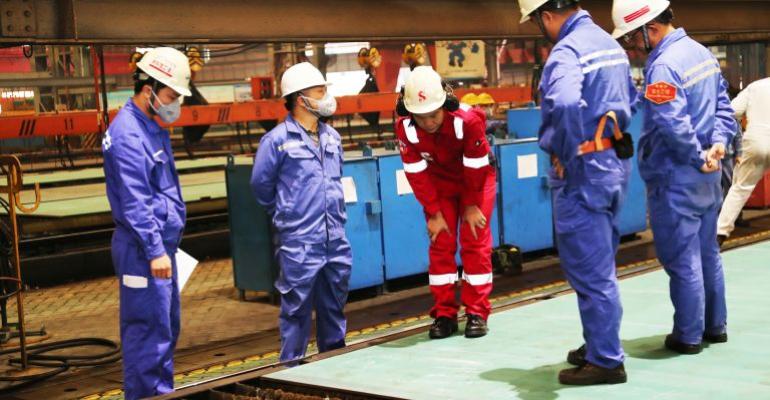Stena Pro Patria will be the first of three methanol vessels to be built by the joint venture between Swedish Stena Bulk and the Swiss-based Proman Shipping.
The steel cutting for Stena Pro Patria took place at China’s Guangzhou Shipyard International (GSI), with the shipyard set to further build two more sister ships for the joint venture firm: Stena ProMare and Stena Prosperous.
“The steel cutting for Stena Pro Patria is the first step in a fascinating series of projects that will further strengthen Stena’s commitment to sustainability excellence and with spearheading shipping’s fuel innovation and wider decarbonisation journey,” said Erik Hanell, president and ceo of Stena Bulk.
As a new methanol-ready tanker, Stena Pro Patria will benefit from several design and technical improvements to optimise energy and fuel efficiency. Additionally, the vessel’s latest generation MAN dual-fuel engines will also feature revolutionary new water and fuel emulsion technologies to significantly reduce nitrogen oxide (NOx) emissions.
Stena Pro Patria will use approximately 12,500 tonnes of methanol as fuel per year, which will significantly reduce the volume of carbon and greenhouse gas emissions resulting from the vessel’s commercial operations, especially compared to the use of conventional marine fuels.
Anita Gajadhar, managing director of Proman Shipping, said the new vessel signifies a “step closer towards reaping the benefits of methanol as a future-proof marine fuel and, in doing so, driving the transition towards more sustainable shipping worldwide.”
Copyright © 2024. All rights reserved. Seatrade, a trading name of Informa Markets (UK) Limited.
Add Seatrade Maritime News to your Google News feed.  |

